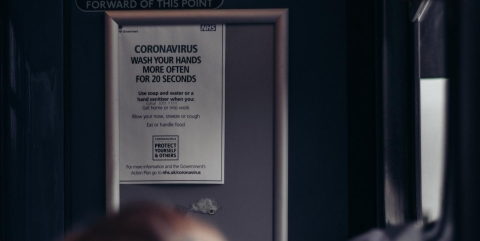This story was first published on IJNet, an ICFJ project that provides the latest tips, trends and training opportunities in seven languages. We’re committed to providing resources to help journalists in our network produce quality reporting on COVID-19 and other pressing topics.

Journalists are working around the clock to provide readers with comprehensive, up-to-date reporting on the COVID-19 global pandemic. Much of this coverage is focused on the reality of the crisis — what is happening, what can be expected, and new guidelines issued by local and national governments.
In the face of constantly evolving information and news about the worldwide pandemic, a solutions journalism approach is not just helpful, it’s essential, Linda Shaw, editorial director at the Solutions Journalism Network, told IJNet.
Stories like this one from CNN, about how South Korea pioneered drive-through testing centers that have increased COVID-19 testing access while minimizing the risk of contamination for healthcare workers, are examples of solutions journalism at its best: evidence-based reporting on the responses to social problems.
“Those are important stories,” Shaw said. “They can be important watchdog stories, too, by showing practices that are working elsewhere that raise the question, ‘Why aren’t we doing that here too, in our community. Why haven’t we done that?’”
Solutions Journalism Network is supporting journalists to take on solutions-oriented reporting around the pandemic. They have launched a Slack channel to help journalists share ideas and receive feedback on taking this approach with COVID-19, and will host a solutions journalism webinar in April. They are also soliciting solutions story ideas, and have begun compiling effective articles that have taken the approach in their Solutions Story Tracker.
While COVID-19 is a global pandemic, stories on local responses are important to tell the whole story of what's happening in a community, Shaw said.
One example of local reporting on efforts to combat COVID-19 is the piece “Coronavirus: Philly community leaders take action over lack of non-English updates,” published in Kensington Voice, a bilingual, hyperlocal publication in Philadelphia. The story was published as part of the Broke in Philly reporting collaborative, which produces solutions-oriented reporting on poverty and economic mobility in the city.
The article explores the actions of leaders in Spanish-speaking communities to address the lack of COVID-19 updates and communication in Spanish and other widely spoken foreign languages like Chinese and Vietnamese. This information is vital to the nearly 25% of the city’s population that speak a language other than English.
Efforts to address the issue in Philadelphia have implications at the national level. As journalist Julio Ricardo Varela wrote on Latino Rebels and NBC News later documented, the CDC and the White House have lagged far behind in distributing updates to basic coronavirus guidelines in Spanish, spoken by more than 40 million people in the U.S. — not to mention other languages.
Solutions reporting isn’t just about being positive. Journalists should apply as rigorous a standard as possible when delving into the solutions being implemented, and the many problems associated with those efforts. For Shaw, this means reporting should be transparent about what we know and what we don’t know, and should follow up on any changes as the situation develops.
“The overall goal is to share the insights and lessons from those efforts,” she said.
It’s important to distinguish between solutions reporting and coverage of immediate responses or heart-warming stories, as well, Shaw noted.
For example, CNN published an article about grocery stores introducing seniors-only shopping hours. This isn’t solutions journalism since there is, as of now, no evidence that this response indeed helps contain the virus or protect elderly people. In the same vein, stories about citizens in Italy and Spain singing from their balconies or applauding healthcare workers, though uplifting, are not solutions journalism stories because they don’t describe a systemic response to the problem.
That doesn’t mean they aren’t worthwhile to cover to better understand how your community is responding to the crisis, Shaw said. “There might be a lot of reasons to do that story even before the evidence is in, whether or not it’s a solutions story,” she said.
If you’re new to solutions journalism or don’t know where to begin when covering the pandemic, Shaw shared four key elements of solutions reporting on COVID-19:
- Focus in-depth on a specific response to a social problem.
- Explore how the response is implemented, and how it works.
- Examine the evidence, both qualitative and quantitative, of what is known so far about the effectiveness of the response.
- Explain the caveats and limitations of the response.
And for a full tutorial on solutions journalism, you can check out Solutions Journalism Network’s basic toolkit here.
Photo by Alex Motoc on Unsplash.